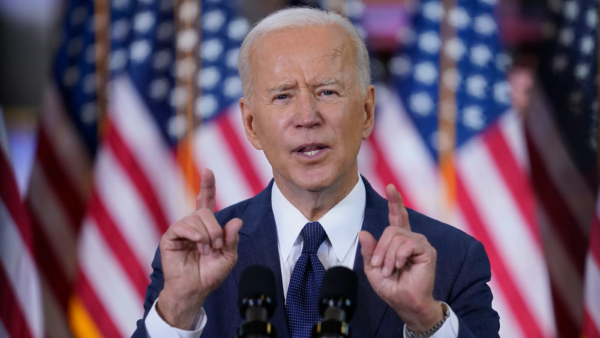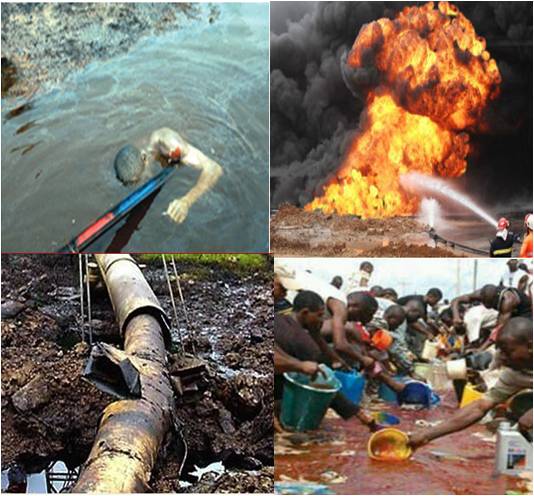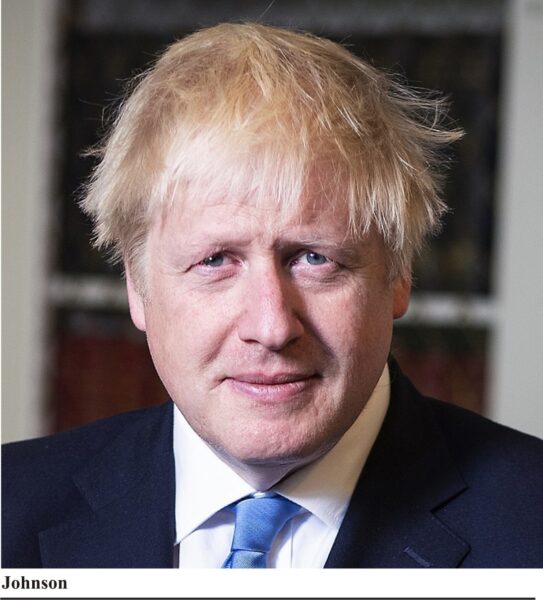X-Raying PAAR As A Trade Facilitation Tool

In the recent conclusion of the World Trade Organisation (WTO) Agreement on Trade Facilitation, it specifically encouraged the World Customs Organisation (WCO) to sustain the use of the internet to publish information relating to trade procedures and the Single Window Concept by Customs Administrations.
It noted that, the application of information and communication technologies by Customs administrations provides far ranging impact on the Facilitation of Trade and trade related provisions in the agreement.
In line to these, the World Customs Organization embarked on the quest to update the Singe Window Compendium, with the aim to provide members with richer content, particularly through the inclusion of “National Best Practices”.
Interestingly, in a letter of commendation to the Nigeria Customs Administration dated in Brussels, 18 June 2014, signed by the Director, Compliance and Facilitation Directorate, it stated: “One such best practice that will be included in the revised Single Window Compendium is the Nigeria Trade Hub. The Secretariat is grateful for your support and assistance received from the Nigeria Customs Service in preparing for this feature which will serve as an inspiration for like-minded countries looking to enhance transparency and trade facilitation through the use of information technology. The World Customs Organization wishes you every success in your IT modernization journey”.
SUMMARY OF PRESENTATION
The Global Trade Liberalization/Facilitation, is confronted by emerging global events, especially with the spate of the increasing threats of international terrorism and organized border crimes, which requires the enhancement of existing border infrastructures and frontier controls.
These challenges now stresses emphasis for an effective national and international cooperation between Customs to Customs, Customs to government agencies, Customs to the trading public, etc.
Globally, these now places the Customs as the Lead agency in most given international frontier/gateways, charged with coordinating, interfacing activities and discharging supervisory roles within the International Supply Chain Management (ISCM).
International frontiers/gateway control will be much easier to achieve with strategic, coordination, cooperation/ collaboration (i.e. information sharing and networking between regulatory agencies and the trading public.) Such collaboration must have the capacity at offering facilitated treatment to vast majority of international cargo movements and passenger traffic whilst identifying and dealing with the small percentage that pose a genuine risk to security.
Under an information technology driven Customs Administration and the quest for a trade facilitation Strategy, the Customs has the onerous Challenge to identifying and determining which goods and which trader are COMPLIANCE with customs law and thus pose a low risk for control purposes.
Administratively, for the Service to actualize an effective integrated control chain, the Nigeria Custom administration evolved the concept of Unique Consignment Reference-(UCR), also known as the “NICIS Nigeria Trade Hub“ “PAAR Application”- which is opened to the party initializing the international trade transactions (shipper) in all international trading environment and being utilized in all relevant communications by all parties involved in the supply chain, paving way for the establishment of an origin to destination information and documentation trail.
The UCR referred to as the Nigeria Trade Hub/PAAR Application will enable Customs to link information received from a particular consignment and will facilitate the exchange of Customs data between Customs Administrations, thereby promoting the concept of e-business in the trade supply chain.
INTEGRITY DEMAND
Ideally, the “Revised Kyoto Convention” deals with the propagation for the global uniform (Harmonization) and simplification of Cargo Clearance Process and Procedures among the signatory Nations in one hand, the “Arusha declaration” preaches the gospel of Integrity and transparency in the Cargo Clearance Process on the part of the officers in one hand and the Trading Public in the other hand.
Essentially, Non compliance to International and National trade laws has been a major impediment to trade facilitation strategy in the Nigeria Customs Port Parlance, this is in addition to; port infrastructure deficiencies (poor port access road, poor dredging cultures, lack of transport infrastructures, the absence of inter modalism), inadequate cargo handling gears, poor forecasting tools, human barrier elements (bribery/corruptions), etc.
INTEGRITY QUESTION
Therefore, Trade Facilitation Strategy refers to the deliberate, concerted efforts by the Government either directly or through its agencies or in partnership with other critical operators in a given International trade environment, to remove all technical barrier to trade, including human factors impeding the smooth flow and fluidity of Cargo movement within the Supply Chain via simplification and harmonization of processes and procedures, showing high commitment to transparency and adherence to information technology application, thereby reducing human contact to cargo.
By the WCO endorsement of the “Nigeria Trade Hub” which is a complementary portal to fast track the PAAR application concept, the agitating question posed before us from the organizer is to ascertain if PAAR indeed has served as an important and prerequisite tool to trade facilitation? This presentation therefore, intends to x-ray and analyze this position without prejudice, as follows:
A BACKGROUND TO THE WTO GLOBAL QUEST FOR TRADE FACILITATION.
Instructively, the intendment for the implementation of Article VII of the World Trade Organization – (WTO) – General Agreement on Trade and Tariff (GATT), is clearly targeted towards:
- The development of the Single Window tool which will further promote a liberal, multilateral trading system, with the aim to provide industries and business enterprises a secure, stable and predictable trade environment under conditions of fair, equitable competition, which in the long run is expected to promote an increased trade, for greater investment, production, employment and thus facilitate the economic development of a country.
- The rules of the Agreement on Customs Valuation system is based on simple and equitable criteria that take commercial practices in to account. It seeks to ensure uniformity in application of the rules so that the importers can assess with certainty in advance, the amounts of duties payable on imports.
- The basic aim of the Agreement is to protect the interest of honest traders by requiring that Customs Should accept for determining dutiable value the price actually paid by the importer in a particular transaction.
- The Agreement recognizes that the prices obtained by different importers for the same Products may vary. The Transaction Value declared by an importer cannot be rejected on mere excuses.
- With respect to “Tokyo Convention and “Uruguay Round”.Customs can reject the transaction value only in such situations it has reasons or justification to doubt the truth or accuracy of the declared price of the imported goods. In such cases, Customs has to give the importers an opportunity to justify their price and if this justification is not accepted, then Customs shall give to the importer in writing the reasons for rejecting the transaction value.
- Customs shall determining the dutiable value by using sequentially the other methods as lay down under the Agreed Custom Valuation Methods.
- Customs shall accord to the importer the right to be consulted throughout all stages of the determination of value.
- The Agreement ensures that the discretion available to Customs for scrutinizing declared Value is used objectively. In this regards, prompt adherence to the “guidelines for conducting price verification” as enshrined in the text of Article 2:20 is recommended.
NOTABLE FACTS ABOUT PAAR
- PAAR is a home grown application initiated from design to implementation by The Nigeria Customs Service with the support of its technical partners -Techno Brain West Blue (TBWB).
- PAAR is a veritable tool in the trade supply chain of Nigeria and a Model for WCO.
- PAAR application utilizes international best practices.
- PAAR entire System and Soft ware application consist of various components.
- PAAR is designed to be implemented on phase bases, covering a comprehensive National Risk Management System, encompassing Pre -Arrival, Cargo Management and Live Vessel Tracking, etc.
DEPLOYING EFFICIENCY:-
PAAR efficiency and effectiveness is further strengthened and supported by:
- The 3CE – Providing Classification Tool.
- The Green-line – Providing Consultancies to PAAR Phase 2.
- The Main One – Providing Data Center, Disaster Recovery and Internet Connectivity.
- The Galaxy Backbone – Providing Communication Network and Internet Connectivity.
- The Nigeria Trade Hub -NTH: Providing tool for PAAR Classification application, a best practice in Web- publication.
- The Tariff Database:- Providing tool for the Analysis and Harmonization of over 8000 HS Codes, Categorized by associated agency, Procedures, documentation, time to process and applicable fees, also accessible by relevant agencies.
- The Ruling Center Network and Risk Management Unit: Providing tool for Trade Decisions with network connectivity enabled, Operational Documentation Process and Policies for the day to day import and export transaction.
- The System Audit Unit: Provide tool for day to day operational monitoring and interventions to aid operational officers in their import clearance decision making.
- The Nigeria Import, Export and Transit Process Manual:- Providing resourceful information’s to guide the trading public, critical stakeholders and serves as the Trade Desk in Embassies to assist with information on Customs Clearance.
- The Capacity Building:- With its IT driven applications, the Ruling Center is “domain expertise” for up to 300 officers, this received the endorsement, of the WCO and International Network of Customs Universities – (INCU).
FUNDAMENTAL ADMINISTRATIVE PITFALLS AND CHALLENGES TO PAAR APPLICATION:
Following the take-off of the Nigeria Customs Destination Inspection implementation scheme, the first three months, as with all projects of this nature, it was characterized with teething problems, the following pitfalls and challenges were observed:
- Integration With Webb Fontaine’s (WF) e-Form and NICIS Platform:
- Lack of support and cooperation from WF, with strong unwillingness to handover the scheme, hence, the mystery of non transmittion of over 99,000 Form M to the new portal.
- Refusal to provide a parallel run of PAAR prior to take off, resulted to difficulty to the learning ability of the officers and hindering technical issues identification.
- Delay in providing critical historical data for migration to NCS, thereby hampering on proper filtering and migration of data to the new platform.
- The Subtle refusal and untimely interfacing the e-Form M with the PAAR application.
- The Failure of PAAR transmission to NICIS resulted to the difficulties in submitting Customs Declarations by the importer/agents.
- The Total NICIS Server Breakdown, the incessant breakdown of the WF optic Server most often Paralyses; bank documentation process, ruling center e-Form M uploading and processing time, operational units system break down, thereby causing delays in cargo clearance, artificial port congestion, under utilization of the scanning machines, promoted exorbitant storage and demurrage charges, subtle inflation, gross financial looses to the trading public, heightened tension at the operational areas, etc.
CORE OPERATIONAL CHALLENGES MILITATING AGAINST THE FLUIDITY OF PAAR APPLICATION AND TRADE FACILITATION:
Apart from the above noticeable pitfalls, it is important to reiterate that the PAAR Platform is structured to promote honest transactions. But incidences of dishonest declaration, Incessant Server Break down and the non Full Automation to link some Critical Stakeholders into the NICIS Platform (especially the terminal operators, shipping lines, etc) accounts majorly for operational delays inherent in the import documentation and clearance processes.
Resultantly, with high statistic of discrepant/non complaints importations the following human barrier element took a center stage, (bearing in mind that illegality begat illegality) namely (to mention but a few):
Malpractices –
- Connivance to cheat on the part of the importer, agent, bank designated officer, corrupt officer, etc. promoting penchant for unholy practices.
- Issuance of Frivolous Demand Notices.
- Haggling and Highhandedness.
- Uncoordinated and Indiscriminate “Alerts” intervention/interference from various units within the operational areas.
- Uncoordinated administration of the Scanners operations.
- Non availability or inadequate physical Examination handling Equipments.
- Others are; infrastructural challenges and regulatory requirements and uncoordinated procedures.
- EMERGING OPERATIONAL ACHIEVEMENTS OBSERVED:-
- i) The Introduction of Robust Revenue Intervention Mechanism.
- ii) The Fast tracking of Compliant Traders, Based on the WCO SAFE Framework of Standard – Authorized Economic Operator (AEO) Concept.
- iii) The Timely Issuance of PAAR.
- iv) The Consistent Internal and External Capacity building initiatives.
- v) The Building of a Dynamic Risk Management Engine.
- vi) The Entrenchment of Culture of Professionalism and Quality Control.
COMPARATIVE COST IMPLICATION OF ICT INFRASTRUCTURE DEVELOPMENT.
- The Fontaine and Destinations Inspection Contracts Cost from 2006 – 2013, are as follows;
- Cost of Contract for issuance of RAR and ICT infrastructural provisions: USD$312,000,000:00 (Three hundred and Twelve Million dollar) per year.
- Total Cost For Eight (8) Years (2006 – 2013):’= USD$2,496,000,000:00 (Two billion, Four Hundred and Ninety Six Million Dollar).
- Equivalent Value in Naira @ N165 per USD$.= N411,840,000,000:00 (Four Hundred and Eleven Billion, Eight Hundred and Forty Million Naira only).
The NCS ICT Infrastructural Development, cost are as follows;
- The NCS PAAR and Single Window Schemes (Nigeria Trade Hub), Cost: N100,861,992:00.
- The PAAR additional Enhancement Support Cost:- N62,523,200:00
- The NCS Data Center and Disaster Recovery Cost:-N489073,696:32
Total = N652,458,888:32 ( Six Hundred and Fifty Two Million, Four Hundred and Fifty Eight Thousand, Eight Hundred Eighty Eight Naira, Thirty Two Kobo Only. The Dollar Equivalent Value/@ USD165 = USD$ 3,954,296:30.
PAAR SUSTENANCE PLAN:
With the dynamics of International trading environment, the need to sustain the PAAR laudable system , so as to continuously ensuring optimal output and seamless trade facilitation, the management of PAAR Ruling Center is expected to further the implementation of the following :
- i) The full integration of the Destination Inspection Services i.e. Scanning and PAAR.
- ii) The Onshore / OffShore Capacity building for PRC Management, so as to keep the Technical Team and Other Officers Constantly abreast with modern tools and international best practices, in the ever dynamic ICT world.
- iii) To work out modalities to adopting the “Indian Customs Model” by sending NCS officers as attaché ‘Price Analyst’ to chambers of commerce of countries with high Volumes of import to Nigeria.
- iv) The Enhancement and Maintenance of a Comprehensive and Computerized Customs Risk Management System (CRMS), fully integrated with relevant Stakeholders.
- v) Enhance and guarantee effective profiling of imports for targeting and evolving an informed intervention that would guarantee trade facilitation without jeopardizing national security and revenue.
- vi) Expanding the existing system to evolve a world class Data Center, equipped with Backups, Disaster recovery plan, fire or water detection system and security control.
CONCLUSION
I make bold to state that, PAAR remains a capable modern trade facilitation tool, compliant to international best practices, hereby requiring that some of the issues raised above be addressed squarely. The provision of at least Two weeks to conclude all documentation processes before vessel arrival is unbeatable, if diligent efforts and honesty is applied in all facets of international transactions and clearance processes within the Customs Ports. This is the sure way to true attainment to the 48 hours Cargo Clearance out of the port as canvassed by the Federal Government.
Finally, I wish to implore the Nigeria Customs Administration to Fast tract the Full integration/Automation process, linking critical stakeholders on the platform, while the Shipping lines and Terminal Operators are equally advised to follows suite, as this will further reduces the incidences of human contact to Cargo.
Thank you very much for your attention.
Dr. Eugene Nweke
Head, Education and Enlightenment Sub-Committee, Customs Consultative Committee (CCC)
National President, National Association of Government Approved Freight Forwarders (NAGAFF)
CEO/MD, Virtues Marine and Freight Services Ltd







